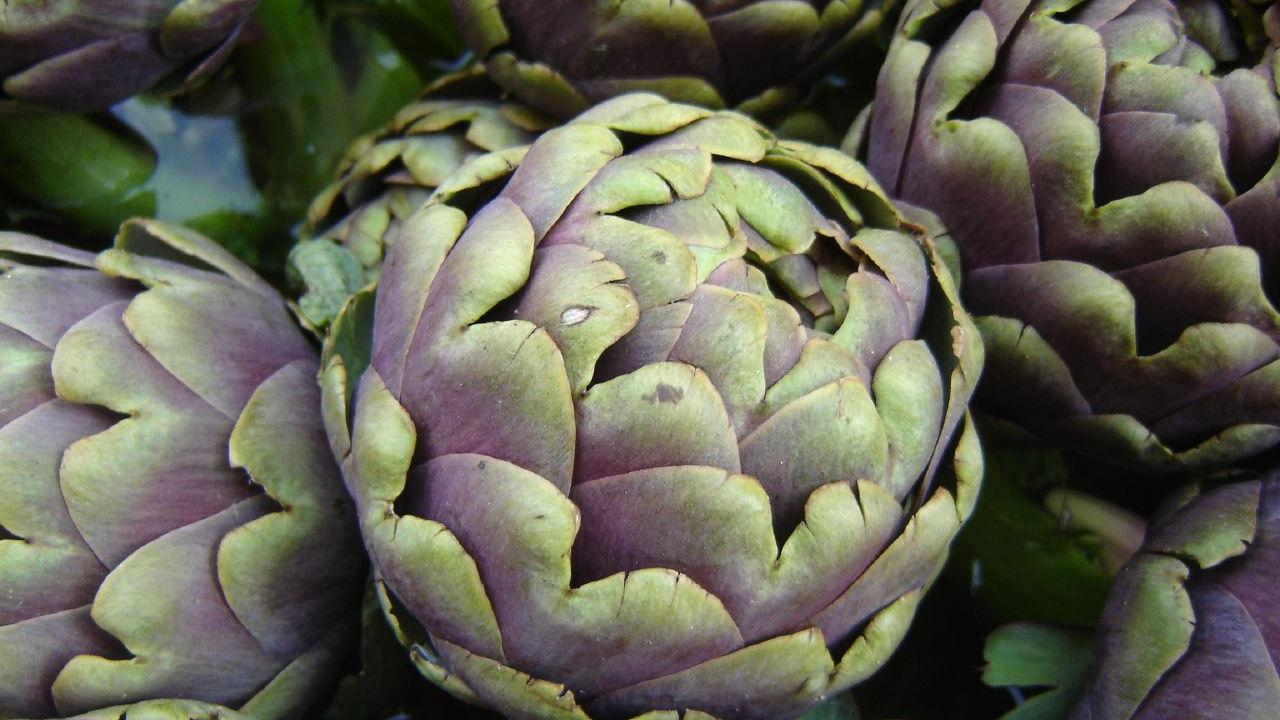Αγγινάρα: Γνωρίστε τα οφέλη της
Ένα από τα πιο παλιά θεραπευτικά φυτά, η αγκινάρα χρονολογείται πίσω στον 4ο αιώνα π.Χ. όπου οι αρχαίοι Έλληνες και οι Ρωμαίοι τη χρησιμοποιούσαν για πεπτικά προβλήματα. Αργότερα, τον 16ο αιώνα, χρησιμοποιήθηκαν σε προβλήματα που αφορούσαν το συκώτι και τον ίκτερο, η φήμη της, ωστόσο, εξαπλώθηκε τον 20ο αιώνα, όπου έγινε δημοφιλής ως ένα πολύ γευστικό φαγητό με πολλά και πλούσια οφέλη.

Πλούσιες σε αντιοξειδωτικά
Μια μελέτη που έγινε από το Υπουργείο Γεωργίας των ΗΠΑ, διαπίστωσε ότι οι αγκινάρες έχουν περισσότερα αντιοξειδωτικά από οποιοδήποτε άλλο λαχανικό και κατέχουν την έβδομη θέση σε μια μελέτη των επιπέδων αντιοξειδωτικών σε 1.000 διαφορετικά τρόφιμα. Μερικά από τα ισχυρά αντιοξειδωτικά στις αγκινάρες είναι η ρουτίνη, οι ανθοκυανίνες, η κυναρίνη, η λουτεολίνη κ.ά..
Αυξημένη ροή χολής
Ο πολτός από φύλλα αγκινάρας περιέχει ένα αντιοξειδωτικό που ονομάζεται πολυφαινόλη κυναρίνη, που αυξάνει τη ροή της χολής.
Ωφέλιμες για το συκώτι
Χάρη στην κυναρίνη και ένα άλλο αντιοξειδωτικό που ονομάζεται σιλυμαρίνη, οι αγκινάρες είναι πολύ ωφέλιμες για το συκώτι. Μελέτες έχουν δείξει ότι μπορούν ακόμη και να αναγεννήσουν τον ηπατικό ιστό. Οι αγκινάρες εδώ και πολύ καιρό χρησιμοποιούνται στην εναλλακτική ιατρική ως θεραπεία για παθήσεις του ήπατος και οι επιστημονικές μελέτες αποδεικνύουν πλέον την ορθή αυτή χρήση.
Καλύτερη πέψη
Οι αγκινάρες βοηθούν το πεπτικό σύστημα. Είναι ένα φυσικό διουρητικό, που βοηθά την πέψη και τη βελτίωση της λειτουργίας της χοληδόχου κύστης, αλλά και στην ανακούφιση γαστρεντερικών προβλημάτων.
Προστασία των οστών
Η αγκινάρα αποτελεί πολύ καλή πηγή βιταμίνης Κ, η οποία συμμετέχει στη διατήρηση της υγείας των οστών, ενεργοποιώντας την πρωτεΐνη οστεοκαλσίνη, ή με άλλους μηχανισμούς. Είναι λοιπόν ιδανικές για άτομα με αυξημένο κίνδυνο για οστεοπόρωση.
Μείωση της χοληστερόλης
Έχει αποδειχθεί ότι τα συστατικά στα φύλλα αγκινάρας μειώνουν τη χοληστερόλη. Αυξάνουν την καλή χοληστερόλη (HDL) και μειώνουν την κακή χοληστερόλη (LDL).
Υψηλή περιεκτικότητα σε φυτικές ίνες
Μια μεγάλη αγκινάρα περιέχει το ένα τέταρτο της συνιστώμενης ημερήσιας πρόσληψης φυτικών ινών. Μια μεσαία αγκινάρα έχει περισσότερες φυτικές ίνες από ό, τι ένα φλιτζάνι αποξηραμένα δαμάσκηνα.







